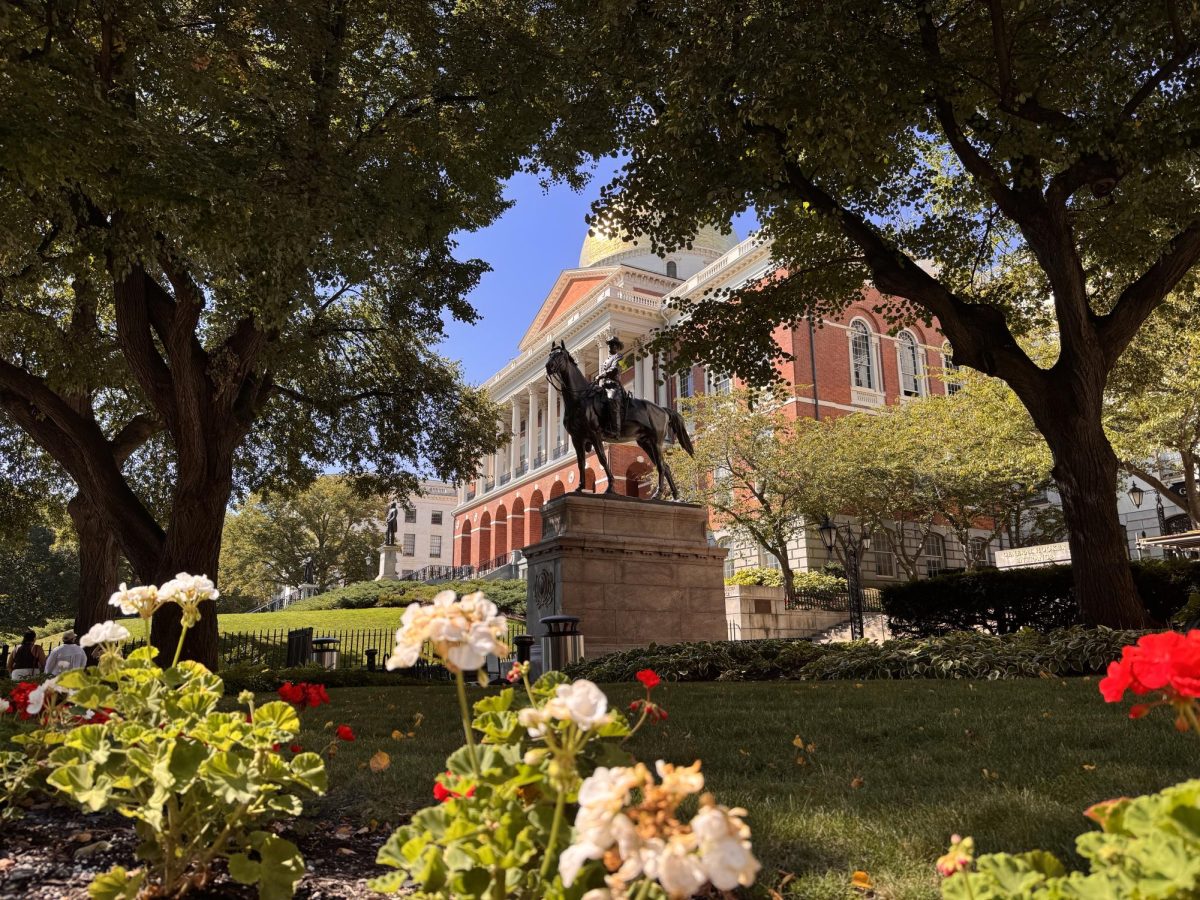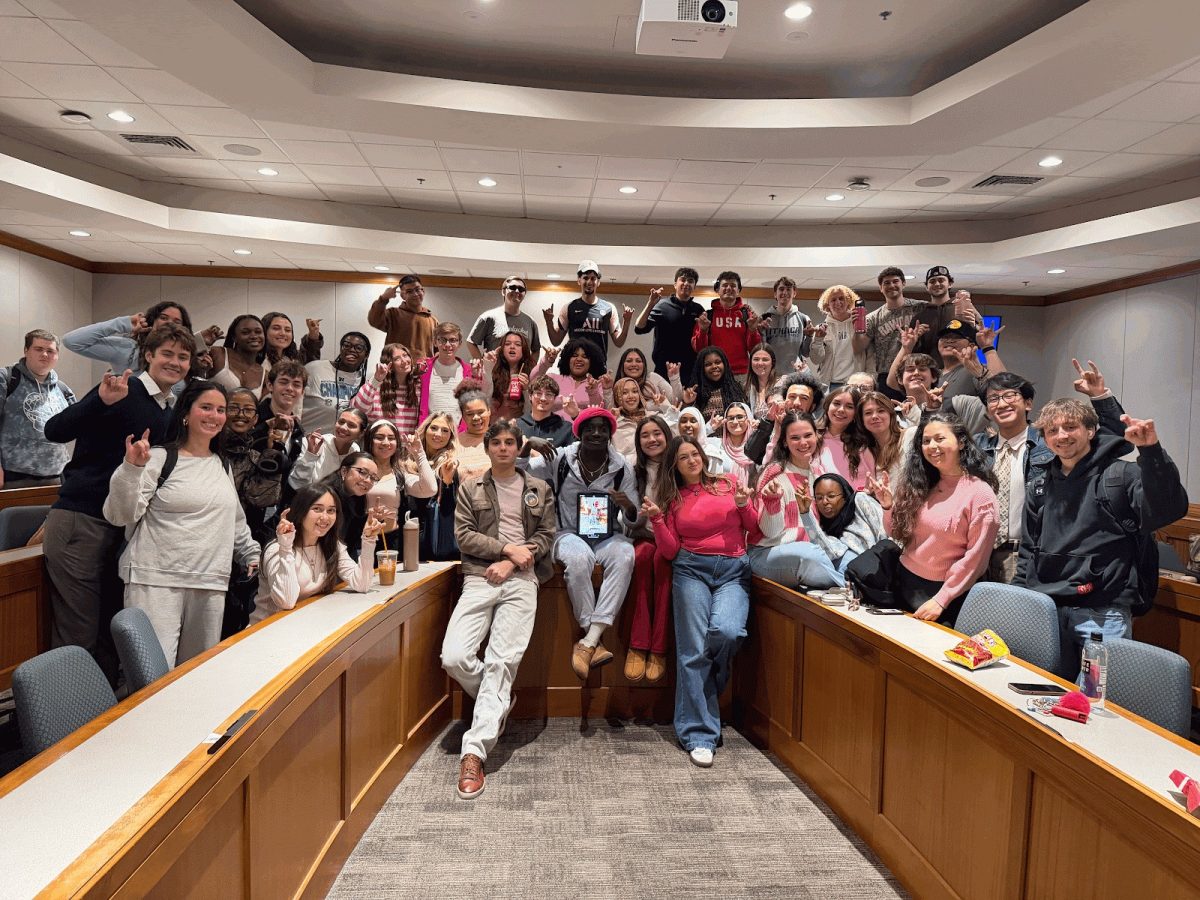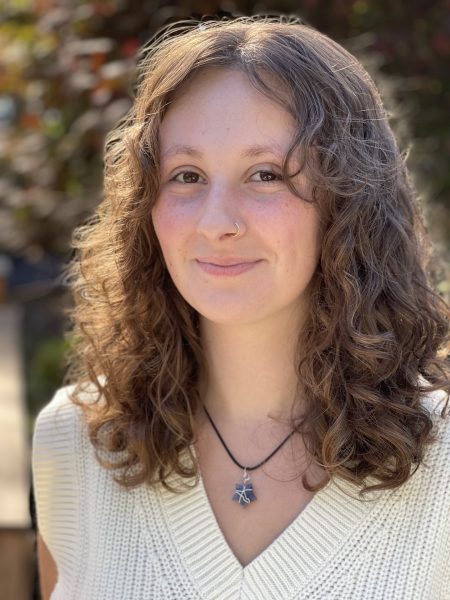Suffolk’s McNair Scholars program is safe for another year after leaving on an unknown note last semester.
“My future is not being taken away and my dreams are not being torn apart via an administration,” said Tatiana Avila Velasquez, a McNair Scholar and senior marketing and global business major at Suffolk.
At the beginning of President Donald Trump’s return to office, he took steps to dismantle the Department of Education. The effects of this were not only felt by public schools across the country, but also in educational equity programs in higher education. Funding for federal financial aid and TRIO programs were of a top concern to Suffolk students last semester.
One of these TRIO programs is the McNair Scholars. This program provides mentorship and opportunities for students of disadvantaged backgrounds to access graduate school.
Inside Higher Education estimated that the Trump administration withheld about $660 million worth of aid for more than 2,000 TRIO programs across the country.
Suffolk has housed three TRIO programs for over 20 years. With these cuts, McNair and Upward Bound were able to continue into the 2025-26 school year, but funding was cut from the university’s Veterans Upward Bound program.
With many of the McNair Scholars at Suffolk being first-generation college students, scholar Victor Cruz-Castro said this program allows a space for students to come in with no knowledge of higher education and graduate school to learn together.
“The McNair program is definitely something that has created an outlet for students to be okay with not knowing much,” Cruz-Castro said.
It also gives students an opportunity to see themselves in academic situations they never thought possible. For Ayan Moahmed, she had never seen herself applying to graduate school. But now, as a senior political science major, she has the support to pursue further education after her time at Suffolk.
“[It’s] putting students like me, who never saw themselves in these types of situations and see that ‘yeah, you can do that, and we’re going to support you while you do that, and help you see that you belong in those spaces just as much as everybody else,’” Moahmed said.
TRIO programs have been federally funded since their founding. Every five years, programs have to submit grants to the Department of Education and get the funding approved in Congress’ spending budget. The contract for Suffolk’s McNair program has allocated money through Sept. 30, 2026. Meaning the money for these programs has already been allocated through next year.
However, each year the programs must submit an annual performance report that government bodies then review before sending the grants for the coming year.
Bryan Langren, the program director of Suffolk’s McNair Scholars program, told the Suffolk Journal that it was through these performance reports that funding was being cut from these programs across the country this year.
Landgren said that the people reviewing the performance reports selected minor things, like diversity training for staff, and cut funding through those means.
“They’re just really picking out those one or two things, which is why we were so nervous,” Landgren said. “Because Suffolk is a huge school for access and opportunity, it’s a part of their strategic plan. So all of our grants are written with that in mind.”
Over the month of September, TRIO programs were awaiting their Grant Award Notifications, telling the programs whether the funds for the coming school year were coming or not.
Leading up to the grant notification, Landgren said that it was the students who put in the work to advocate for the program to continue.
“It is fully the doing and the responsibility of the students in this program that we are able to be here. And it has been a very heartwarming and heartbreaking experience all at one,” said Landgren.
Avila Velasquez serves as the executive student liaison for the McNair program at Suffolk. She said that over the summer, as many scholars were conducting their research and working on graduate school applications, they were also advocating for the program.
McNair scholars across the nation posted their personal experiences on LinkedIn, highlighting how the program has positively impacted their lives, said Velasquez. Many of the scholars were also calling and emailing their representatives in Congress, ensuring that elected officials were advocating for TRIO programs.
“It was nice to see that we all came together as a group and as McNair Scholars across the nation to really speak up for the program,” Avila Velasquez said.
But with such an unknown fate, Avila Velasquez said that both over the summer and the past spring semester, the students were determined to make the most of the program while it was still protected.
“I think all of us felt like we had to really grasp onto everything that McNair was giving us at the moment because it could potentially be taken away from us,” Avila Velasquez said.
Cruz-Castro is a junior undergraduate law major and, in addition to being a McNair scholar, he works in Suffolk’s First-Generation and Center for Educational Equity office, where the McNair program is based.
In the days before receiving their own Grant Award Notification, the Veterans Upward Bound got notice that their program would not be funded for the next year and services would end Sept. 30. Cruz-Castro was in the office as these updates rolled in, and the uncertainty and worry continued to grow.
“Obviously we all try to stay optimistic and positive, but it’s hard to stay positive when a program similar to yours held in the same office didn’t really get the route that everyone was expecting and waiting for,” said Cruz-Castro.
But the McNair program received its Grant Award Notification. The program announced its win Sept. 24.
“I almost cried. Like it was one of the most emotional moments I’ve had this semester so far,” said Avila Velasquez, who was in the office when they received word of the GAN. “It was good to see everything we had prayed for come true and hoped for come true, it was just like a wave of emotions.”
“It was a moment of so many happy, so many cheerful emojis in our group chats, being able to share that celebration,” said Cruz-Castro. “It was so cool to be able to step back into the office again and be able to really feel that stress being released from our shoulders and be with each other. That was a really memorable experience.”
Landgren said that while the immediate stress of knowing the program was continuing was relieving, it did not mark the end of the “war on opportunity” that he said is still prevalent for educational equity and access.
“It was definitely a weight lifted off our shoulders for a minute, but it was also still like, okay we won this battle but we all know that a battle doesn’t just happen once,” Landgren said.
“When you face that type of level of uncertainty, especially when it comes to funding, we’re definitely sure to face it again,” said Cruz-Castro.
“Just bring McNair into every room that we’re in,” he said. For Cruz-Castro, it’s important for the scholars to stick together now and become more knowledgeable on these processes and continue to advocate for these programs.
“The McNair Scholars Program is here to stay,” said Avila Velasquez. “I think as an undergraduate, it honestly really shaped my academic career. I think I would not have been able to apply to grad school or even think of a PhD without a program like McNair.”
While the program will continue to run during the 2025-26 school year, Landgren said there is still some worry about how to operate now.
“We as TRIO programs have always followed the rule of law, we have always followed the United States Constitution and we always will,” Landgren said. “Every administration, though, is going to interpret certain laws differently, even though things like the United States Constitution aren’t up for interpretation. So that lends us to the difficult, challenging part of figuring out what to do.”
But even with the ongoing worries, McNair scholars and administration are not backing down.
“The program really is something that is foundational for Suffolk, and it’s hopefully things that we can kind of use to help shape the value that Suffolk runs on, to ensure that spaces like McNair stay,” Cruz-Castro said.
Scholars within the program continue to finalize research from the summer and, especially for upperclassmen, work on graduate school applications with the guidance of Landgren and other McNair support staff and mentors.
“I remember walking into my interview, and one of the first things I said was that I’m looking to be the most educated version of myself, and McNair at Suffolk was able to give that to me,” Avila Velasquez said.









